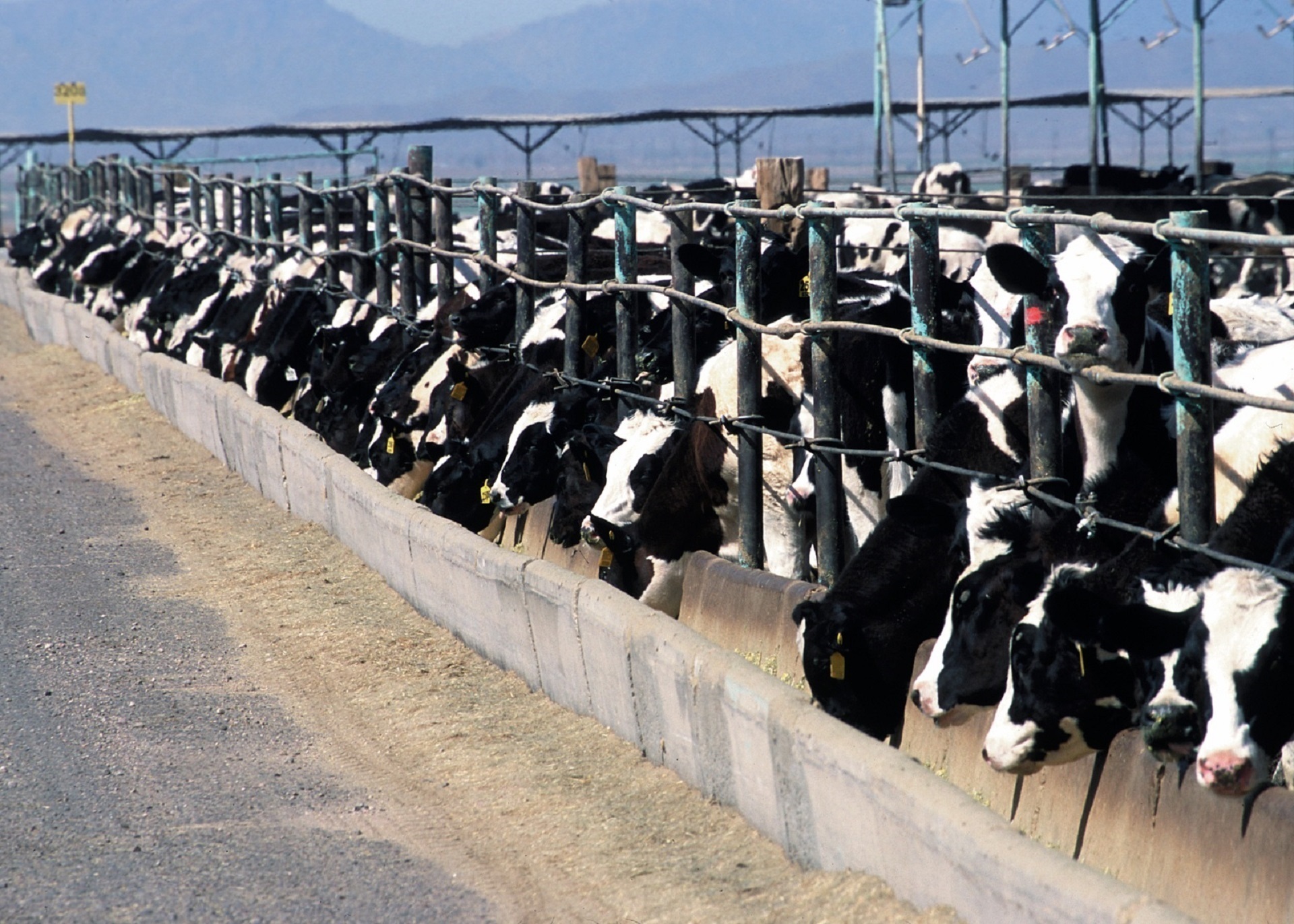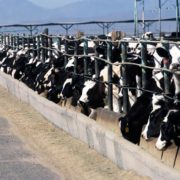Seriously. We need to get real about meat.

Well, Nebraska is angry.
That probably doesn’t tip your attention meter unless you are into college football and/or John Deere mega-tractors.
Seems that Nebraska has its knickers in knots over people considering as meat anything other than muscle, gristle, and fat that has been extracted above four legs.
Our recent Sunday paper Business Section gave the story front-page position complete with color photos of a “real meat” and a “fake meat” burger.
For the record, the fake-meat patty is wheat protein, coconut oil, potato protein plus other plant-based ingredients.
I hope you meat-lovers can contain the nausea
It’s easy to see why Nebraska is upset. The state led the nation in commercial red meat production in 2017, had the most feed cows as of last year and realized $12.1 billion in “livestock and livestock product related sales” in 2016.
I’d be upset too if I saw a wheat protein/coconut oil assault coming. It must feel like the music industry did when the I-pod emerged, or like the publishing world watching Jeff Bezos and his troops.
OK, that may be a bit of stretch. However, I believe that the meat industry has more to fear from the growing global awareness of the health- and environment-destroying nature of their product than from fake meat.
Before you tag me as a tree-hugger/environmental whacko, please know that I have a love-hate relationship with meat.
I grew up on it. My taste buds remain captive to the taste of a burger or a brat although they pass through my gullet very rarely these days.
I knew nothing of the ill effects of a meat-based diet growing up in the ’40s and ’50s. No one that I knew did either. In the tiny, rural, agrarian Wyoming community I grew up in (which was one-half mile from the Nebraska state line), slaughtering and butchering a cow and/or hog was an annual or semi-annual ritual for many families.
Meat and potatoes were truly the normal dinner fare.
But this was also an era when doctors were advertising the health benefits of cigarettes.
We were more than a little short on important biological data back then.
If you’ve hung with me through my many rants over the last year or so, you know that, at 73, a routine heart scan (my first ever) revealed significant artery blockage, putting me, at least on paper, in the high-risk category for cardiovascular disease.
My 50+ years of meat and dairy consumption carried a price – it had clogged my pipes. Just as it does for most of us.
Heart disease remains our biggest killer, and a meat- and dairy-based diet plays a big role in that.
Fortunately, subsequent echo and treadmill stress tests indicate that my blockage is distributed and blood flow is near normal. So I proceed with my six-times-a-week aerobic and three-times-a-week weight lifting routine as if nothing is wrong.
So far, so good.
And I’ve become a “flexitarian”, meaning I’m mostly a vegetarian with an occasional blunder into a burger or brat. I’m pleased to say that I haven’t set foot in a fast-food joint or received a meal through the side-window of my car in three years.
Meat deserves a double rap
Helping us die early isn’t the only rap on meat. There’s another, even bigger, issue with meat.
It’s killing our planet.
The Lancet, one of the world’s oldest, most prestigious, and best known peer-reviewed general medical journals, published the following on 11/24/18:
“The emotionally charged debate over the ethical suitability of meat consumption may never reach a conclusion, but it is only comparatively recently that the climate impact of livestock rearing and the nutritional and health issues caused by meat have become a pressing concern.
The global ecological sustainability of farming habits has not been a major topic of conversation until the last few decades. It’s only now that we’re beginning to have a conversation about the role of meat in both of these debates, and the evidence suggests a reckoning with our habits is long overdue.
Meat production doesn’t just affect the ecosystem by production of gases, and studies now question the system of production’s direct effect on global freshwater use, change in land use, and ocean acidification. A recent paper in Science claims that even the lowest-impact meat causes “much more” environmental impact than the least sustainable forms of plant and vegetable production.”
Hey, I know that’s a mouthful. But then these are serious considerations. Since my heartscan scare, I’ve become a bit of a student of the role of meat in our overall health. In that discovery process, I was shocked to learn of the depths of the ecological impact of the livestock industry. It’s pretty shocking – both in magnitude and how little is ever said about it.
The negative impact on our health is a given and well-publicized so no need to go there. But I want to share some snippets of what I’ve read and learned about the silent side of the destructive power of the livestock industry.
Here are a few eye-openers to consider:
- Global meat production has quadrupled over the last 50 years. We’ve transported our western diet of burgers and steaks to the likes of China where per capita meat consumption has increased six-fold since 1965
- The calories lost by feeding cereals (not their natural food) to animals instead of using them directly as human food could feed an extra 3.5 billion people. It takes 7 kilos of grain to produce one kilo of beef.
- Pasture and arable land dedicated to the production of feed represent almost 80% of the total agricultural land. One-third of global arable land is used to grow feed, while 26% of the Earth’s ice-free terrestrial surface is used for grazing.
- U.S. corn eaten by people: 2%; U.S. corn eaten by cattle: 70%. (NOTE: cows are ruminants, designed to eat grass. Corn is not a natural food for cattle).
- Over 75% of pharmaceuticals used in the U.S. are used on livestock, primarily to keep them alive long enough on an unnatural diet to get to slaughter weight.
- U.S. farmland producing vegetables: 4 million acres; U.S. farmland producing hay for livestock: 56 million acres.
- As we face major global overfishing, half of the world’s fish catch is fed to livestock.
- Considering that water may become the next “oil”, swim in these staggering numbers, courtesy of a study by Soil and Water Specialists at the Unversity of California Agricultural Extension. Water required to produce:
- 1 pound of lettuce: 23 gallons
- 1 pound of tomatoes: 23 gallons
- 1 pound of potatoes: 24 gallons
- 1 pound of wheat: 25 gallons
- 1 pound of carrots: 33 gallons
- 1 pound of apples: 49 gallons
- 1 pound of chicken: 815 gallons
- 1 pound of pork: 1,630 gallons
- 1 pound of beef: 5,214 gallons
If you are a Californian, you can save more water by not eating a pound of beef than you can by not showering for six months. Do both, and you fully qualify as a whacko.
Well, I’ve stepped on the toes of a lot of hard-working farm folks – people that made up my heritage. Sorry, but at some point, don’t we need to get real? Our planet can’t continue to sustain this type of imbalance.
That’s the intent of this article/rant. This information is never going to be revealed by the powerful livestock industry. Do me a favor and share some or all – and maybe start reconsidering what ends up on your dinner plate.
For your health’s sake – and for my grandchildren’s planet.




Excellent comprehensive article – no meat for almost 20 years ! Thanks
Wow, Joanne – 20years? You’ve been on the leading edge – great example for us all. Stay in touch!
Great compilation of facts that paints the big picture. Thank you.
Thanks for the encouragement, Pat.
Some great information here Gary. I gave up meat and dairy about 7 years ago and haven’t looked back. There are so many alternatives these days it was easier to switch than I imagined.
Thanks for the comment Bryan. I think most folks don’t realize how tasty alternatives to meat and dairy can be. There seems to be a stigma that says that plant-based can’t possibly taste as good. We’ve found numerous non-meat/dairy recipes that are out-of-sight tastewise. Our taste buds can be trained/untrained. I’m sure you can attest to that.
When my wife was diagnosed with breast cancer and, 4 months later, I was diagnosed with cancer, we had to research lifestyle changes that would potentially affect our treatment and prognosis. I can happily say that we both are doing great and have been meat-free for 1.5 years. The best available evidence shows that a meat-free, whole-plant-rich diet gives the lowest risk of cancer recurrence (and occurrence).
And the black-bean and Lentil burgers we’ve been making are absolutely wonderful. Put them with red onions, lettuce and tomatoes between two whole-grain buns and… what a treat! Mostly, we eat Whole Foods that are plant-rich and full of flavors.
And, the aches we’ve had since our 40s are gone.
This really answered my problem, thank you!
My partner and I stumbled over here from a different website and thought I might check things out. I like what I see so now i’m following you. Look forward to going over your web page yet again.